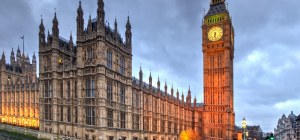223: Brexit and the devolution dilemma
All sides in the Brexit debate expect some economic disruption once we leave the EU. Many believe that the future should be in local hands and that Westminster needs to let go. Unfortunately, it seems that Westminster does not necessarily feel the same way.
There was certainly a drive towards devolution under the Coalition Government particularly under the direction of George Osborne. But as he became part of political history following the Brexit referendum result, many worried that devolution would go the same way. Many are though still pushing for devolution and believe that it will be even more important in a post-Brexit world.
Many of the challenges facing the drive towards greater devolution were discussed at the recent Key Cities Beyond Brexit conference that I attended. There are though a number of dilemmas facing both central and local government where it comes to devolution.
- Brexit excludes all else – it is clear that nothing outside of the immediate priorities of getting a deal done and preparing for Brexit (hard, soft or no deal) is getting a proper hearing. Whitehall simply doesn’t have the capacity to consider anything else. This is ironic given that they often accuse local government of lacking capacity…So, the local level can generate the ideas but central government doesn’t have the capacity to listen and make decisions, if needed.
- No legislation – not all moves towards devolution would need legislation but Parliament won’t have the time to consider much in any case. There is the possibility that this limits potential reform.
- Lack of local input into Brexit – it has been clear, especially from comments made by the Metro Mayors, that there has been a lack of engagement over Brexit. Whilst the position may have improved in recent months, the Mayors had to push for their issues to be listened to.
- Funding – when the Government considers the Comprehensive Spending Review (CSR) early next year, there will be a wide-range of competing voices to consider. However, what has been clear through the period of austerity is that local government has taken the brunt of the spending cuts. To continue this trend, at a time when local help is needed to build a post-Brexit future will be seen by many as counterproductive.
- The levers of power – central government will need to show that it is dealing with the post-Brexit challenges. That means it could rely heavily on tried and tested interventions rather than allowing local bodies (councils, LEPs etc) any real degree of flexibility or ability to experiment.
- A focus on London – despite the need consider the country as a whole, there is a danger that the focus will be on London not least because of its importance to the economy of the country as a whole. There are also a lot of Conservative held seats around London…. This could, in turn, mean that Government then uses its powers in a piecemeal way to help ‘left behind’ areas.
Those pushing for continued devolution appreciate the challenges they face. This isn’t simply a case of what gets spent where or spend per head but instead needs arguments to be made about the comprehensive case for devolution. This needs local and national voices, across politics and business, to make the case. Otherwise, Westminster will listen to Westminster and they simply won’t let go.









